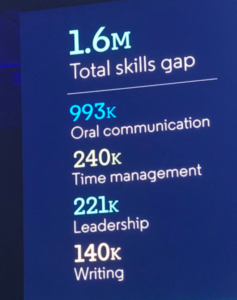There’s one thing we as HR pros are pretty consistent on. We never want to go to court! We do just about anything to mitigate risk for ourselves and our organizations. The first rule of
Now, that’s how most HR pros feel. I don’t. I don’t believe it’s HR’s job to mitigate risk. I believe it’s HR’s job to advise our decision makers of risk. Of course, if you are a decision maker, in HR, then it’s your job to mitigate risk over what you’re responsible for. All that being said, I’m in the minority of that opinion.
So, why do I feel this way? It’s all numbers to me. Check this out from FloridaOvertimeLawyer.com:
- In 2014, there were 88,778 Employment Related Charges Filed in the U.S.
- In 2014, from those charges, a total of $372,100,000 dollars was awarded to the winners of those cases.
- That averages out to just: $4,191.35 per case.
Here’s the reality of employment related cases:
- Most cases are won by the employer.
- Employee and Past Employees believe their cases are worth millions.
- Most end up settling for a few thousand dollars.
First, I’m not advising you to not be safe and just go all willy-nilly and go to court! Don’t be stupid. Also, don’t allow yourself and your organization to be held hostage by an employee or past employee threatening a lawsuit. Most you can settle for way less than you can ever believe!
When I first started in HR I was always shocked by how small of amount of money it would take to make ‘problems’ go away, from a legal standpoint. The numbers above say the same thing. Sure, there is always a risk of a big score. Usually, the companies that get hit with those are truly doing something very bad. If you’re doing good work and trying to follow the letter of the law, rarely do those cases turn into major scores for employees.
Do you want to go to court? Of course not. You, also, don’t want to allow your organization to be bullied by an employee who is taking advantage of your fear of going to court. Judges are really smart people. They see through most con-artists pretty quickly. I’ve been to court on employment matters a number of times, and each time the judge was fair to my organization, and called out bullshit when they saw it.
Do good work. Do good by your employees. Don’t allow your organization to do bad stuff. Trust our legal system will do what’s right. Don’t allow yourself to be held hostage!

